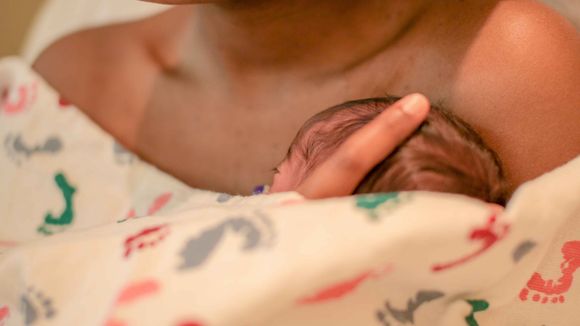How long does recovery take after childbirth?
No matter how you gave birth, the first six weeks after birth are considered a period of "recovery". Even if you went through your pregnancy relatively lightly and had the easiest birth in history (and especially if it wasn't), your body was stretched like a string and stressed endlessly. Therefore, your whole being needs time to adapt and restore balance.
Note that each new mother is different and there are no universal rules for everyone, so different women will recover at different speeds and with different postpartum symptoms. Most of the symptoms subside within a week, while others (sore nipples, back pain and sometimes pain in the perineum) can last for weeks, and a third (such as chest pain and tenderness or back pain) can stay until the baby grows a little. [ref. 1]
If you have had a vaginal birth, you are also probably wondering how long it will take until the pain disappears and the perineum heals. Recovery can take from three weeks, if there are no ruptures, up to six weeks or more if you have had a rupture of the perineum or episyotomy.
If you gave birth with a c-section, you will probably spend the first three to four days after giving birth in the hospital for recovery; it will take four to six weeks before you feel normal as before birth, but it may take longer.
Myths about postpartum recovery
Myth 1: If you do not have any symptoms, you do not need to do a routine examination

The fourth trimester is defined as the time period from birth up to 12 weeks there. This is one of the most exciting and challenging periods when so many things happen and you can completely mess up what day it is and when you last bathed, especially if you are not sleeping. If you've already had a baby, you know what we mean. If you haven't already, one day you'll remember this information and be glad you've read it. [Ref. 2]
Examinations 6 weeks after childbirth are usually done to check if you are recovering normally, but this time is often not enough. And is it necessary to go to the doctor if you do not have any pain and discomfort? Of course, yes, because you need to restore your mental health and do physical rehabilitation after childbirth. And for this purpose it could be helpful to seek help from medical professionals, as well as a psychologist, physio- or kinesitherapist. In this regard, many women are struggling with pelvic floor issues and for that there is pelvic floor physiotherapy, which helps to cope with symptoms of incontinence and heal the pelvic floor and muscles.
If you do not want to attend a physical examination, then you can look for specialists who work through telemedicine. After all, we are in the 21st century and this aspect of patient care became quite relevant during the coronavirus pandemic.
Myth 2: 6 weeks is enough to recover after childbirth
There are a few important things here. First, healing and recovery are two completely different things. Your tissues may have healed after 6 weeks, the scar from the operation may have healed, the stitches are removed and so on. But tissue healing is a much more labor-intensive and time-intensive process than recovery.
Restoring the whole organism from stress in the last nine months (and then) can take months or even years of time. And for some women, the problems they experience after they give birth continue throughout their lives. So there is no way to say universally for everyone that 6 weeks is enough for recovery after childbirth - it is strictly individual.
Myth 3: You need to regain weight from before pregnancy

Here opinions can be very different, but surely every woman wants to reduce her weight after childbirth and restore it to more normal levels. In no case recent weight loss is recommended, because it can bring more negatives to your body and psyche anyway.
Rather, it is good to put up with for a while with the extra weight, which will only decrease anyway if you eat healthier and get some sleep. And do not look at the numbers on the scales, the body measurements indicate whether you are losing weight or not.
Sometimes it is not possible to become exactly as much weight as you were before birth, but things will fall into place naturally. If you have been exercising more heavily before birth or very actively, then you need to adapt your sports activities to the specific recovery period. This can be helped by both medical professionals and coaches, kinesitherapists and other specialists. Just be sure to be patient and not expect quick results.









